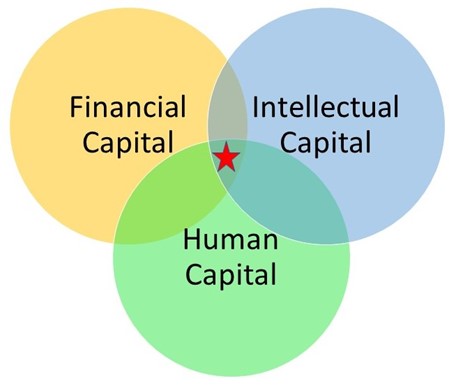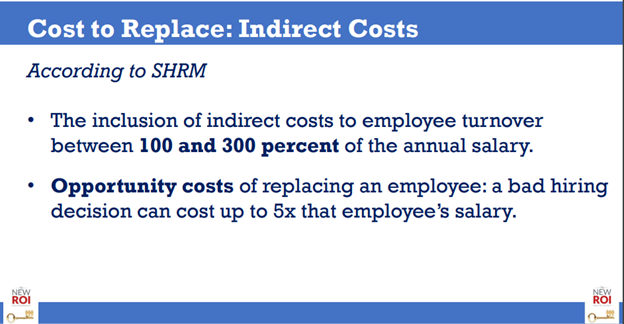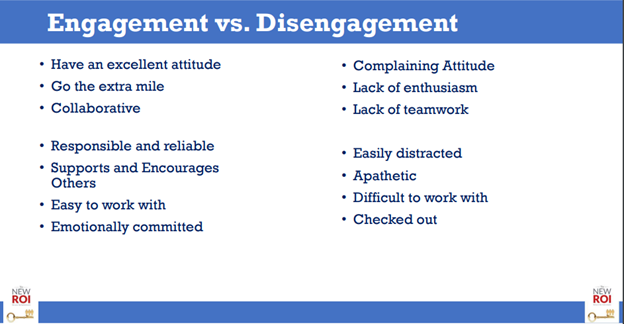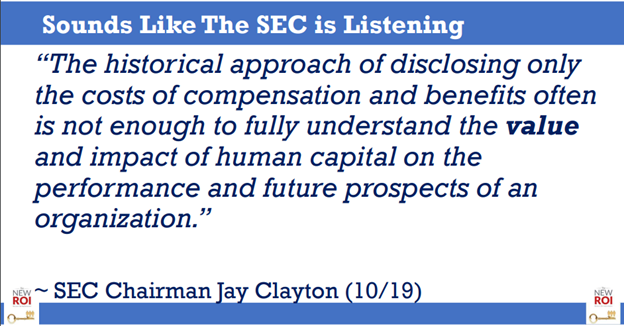I was fortunate to arrange Dave Bookbinder, ASA, CEIV from B. Riley Advisory Services, to speak at our Q1 2022 Committee on Finance and IT (CFIT)meeting for Financial Executives International (FEI) when an opening for a great speaker came up. I had heard Dave’s talk at a financial conference called FInEx Summit 2021 and it was my favorite talk based on the important pro-employee message and opening my eyes to a flawed method of reporting employee value in financial statements. CFIT is the Committee on Finance and IT which normally focuses on the digital solutions of FinTech, but people are the ones to make the technology advancement and true company transformations. It was a good opportunity to put an important focus on the value of the employees to a company at our meeting.
“Employees are our greatest asset!” is a phrase used by countless CEOs, with whom I agree, but it is not easy to prove on a balance sheet, which is the key document to report a company’s assets, liabilities, and equity. This is because people, i.e., the assembled workforce, is not a line item on the balance sheet, rather it is buried in goodwill.
Valuation expert, author, and internet show “Behind the Numbers” host, is leading a pro-employee movement called The New ROI: Return on Individuals. Not only is it a best-selling book, but the book was turned into a theatrical version on stage as a play.
Businesses seek to invest in assets, and reduce expenses. Dave intentionally uses the term “Human Capital” to deliberately assign it to the accounting definition to encourage investments in employees and to not treat employees like expenses that need to be cut.
Dave is quoted as saying that “The value of a business is a function of how well the financial capital and the intellectual capital are managed by the human capital. You’d better get the human capital part right.” Visually, the magic happens at this intersection:

As a valuation professional, he explains that when calculating the value of a company’s intangible assets, employees as a rule are valued at their replacement cost with an assumption that each employee could be replaced with an exact match, which is clearly flawed.
Another book quote that highlights the importance of the human element is: “…the expertise of the people [in the business] is really what customers, clients and patients are buying; [demonstrating] that employees are clearly the main assets of the business.”
Retaining top talent is the hot button issue that companies are facing today, and it is extremely costly for a company to experience high employee turnover. People who feel valued by their company will feel encouraged to stay.
According to SHRM, the Society for Human Resource Management:

Employee engagement is an important metric to determine a company’s success, yet research shows that most workers are disengaged. Here is a quote from Dave’s book,
“Employees who are happy at work feel a sense of satisfaction about their jobs, are more committed to their work and more motivated to work on import tasks. They are more likely to have positive attitudes regarding their jobs and they are more likely to utilize their capabilities that create value for their organization. This is an important finding that confirms the importance of employee morale on productivity.”
Dave also shared research findings about toxic employees. I learned that toxic employees are more productive than average employees, but keeping a toxic, high performing employees is not worth the increased productivity. This is because toxic employees seek to act out their disengagement, and will ultimately poison the environment for the other team members; even causing otherwise good employees to behave badly. Toxic behavior is contagious.

At the end of every CFIT meeting, we reflect on the presentations, offer comments to the group, and share our opinions. Our members agreed it was a valuable presentation and the message resonated with them. CFIT has a cross section of members from small companies to some of the biggest companies in the USA. It was good to know that many of the members work for employee-positive companies.
It is my opinion, that there should be accounting changes to support a better way to account for the expertise of employees that are clearly missing based on how we do things today. I like the below comment from the SEC:

My hope is that this New ROI framework becomes rolled into the ESG reporting changes, and Dave says that he envisions a day when the New ROI the framework will be included in the formal business valuation process, as well as seeing human capital being reported as a line item on the balance sheet.
For more information on the pro-employee social movement behind The New ROI: Return on Individuals you can find a LinkedIn group by the same name, where I am a member, and the book on Amazon. When I first heard Dave Bookbinder’s talk, I took it as a call to action to help share this philosophy with others to find more like-minded people in this compelling cause.